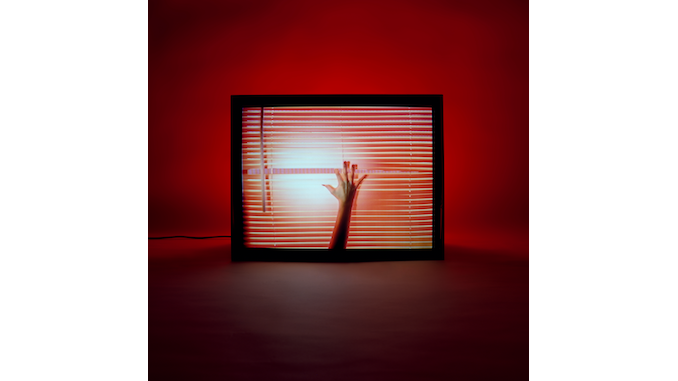CHVRCHES’ Screen Violence Does Little to Refine or Evolve Their Sound
The Scottish synth-pop trio retread well-trodden territory on their fourth album
Music Reviews CHVRCHES
CHVRCHES is a band that encompasses the early-mid-2010s’ wave of synth-pop. Alongside the Glasgow-based trio are Purity Ring, Phantogram and Future Islands, to name a few. Each of these bands had breakthrough albums that earned them massive hits and, sometimes, critical acclaim. For CHVRCHES, 2013’s The Bones of What You Believe was a pristine collection of synth-pop songs that deservedly put them on the map.
Vocalist Lauren Mayberry and synth wizards Martin Doherty and Iain Cook continued that trajectory with their sophomore effort, 2015’s Every Open Eye. But, just like their contemporaries, their songwriting quality began to dip midway through their career. This happened on 2018’s Love Is Dead, and it has happened again on their new record, Screen Violence. The Scottish indie-pop group’s trademark music festival indie is becoming stale. Though a stylistic sheen still coats their layered synthesizers, CHVRCHES’ sound has worn itself thin, especially given the fact that they’ve done little to evolve or refine their songwriting. Instead, the band has replicated itself over the past eight years, consigning themselves to a liminal space in which they do little to shake things up or present even previously explored ideas in a compelling way.
Still, Screen Violence isn’t without its shining moments. Opener “Asking for a Friend” recalls the anthemic vigor of their first two albums, and it serves as a reminder of why CHVRCHES attracted the attention of so many in the first place. It also sets the template for one of Screen Violence’s major motifs: admitting past wrongs and coming to terms with them. “So what do you say when you lose your way? / The past is in the past / It isn’t meant to last,” Mayberry sings over sparkling synths and a vocoded harmony. “California” is also a highlight, and it continues the thematic thread of finding “freedom in the failure” and recognizing the solace of imperfection. “Violent Delights” is another one of Screen Violence’s best tracks, opting for a darker sound with filtered breakbeats that burst into a wave of festival-ready impact in the chorus. Doherty contributes background vocals in the bridge, forgoing the once-obligatory CHVRCHES staple of featuring one Doherty-led song per album.
Goth-rock icon Robert Smith makes an appearance on “How Not to Drown,” and his distinctive timbre lends the song a gloomy character typically not heard in CHVRCHES’ music. It ends with an ambient, Disintegration-esque meditation with gauzy guitars and spectral vocals. But all of these exciting moments take place throughout the first half of Screen Violence, rendering it front-loaded, with few memorable songs holding up the weight of its latter half. Most of Screen Violence’s more forgettable material populates its back end, including the penultimate song, “Nightmares,” and the closing track, “Better If You Don’t.” The former employs a spoken-word section, but it does little to add anything to the song and ends up feeling superfluous.
Every CHVRCHES album has IMAX-sized pop moments that yield returns no matter how many times you’ve heard it. The Bones of What You Believe has songs like “Recover,” “We Sink” and the immense single “The Mother We Share.” Every Open Eye has “Clearest Blue,” and even Love Is Dead has the colossal “Never Say Die.” Screen Violence, on the other hand, seldom offers anything in that light. It simply does what CHVRCHES have always done, but it falls short of reaching the exciting thrills of their earlier work. Rather than distilling their sound into its most captivating components, Screen Violence retreads already well-trodden territory.
Grant Sharples is a writer based in Kansas City. He has contributed to MTV News, Pitchfork, Stereogum, The Ringer, SPIN and others. Follow him on Twitter @grantsharpies.